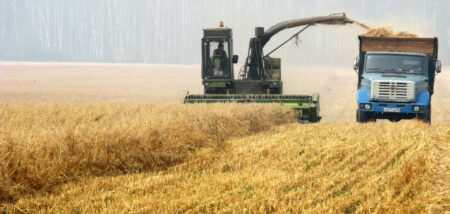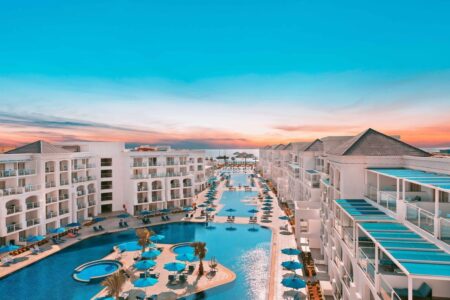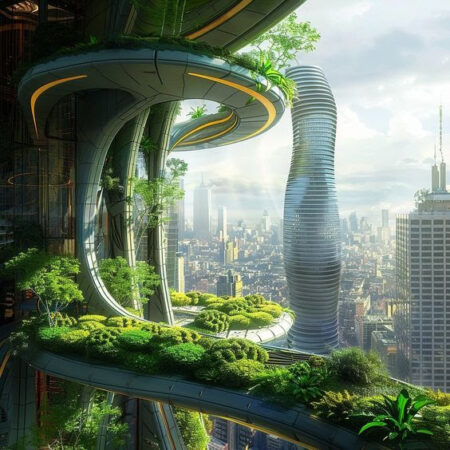- DRC’s agriculture and vast extractive industry are prime targets for global investors. UAE investors have already struck a deal with the Kivu and Maniema Gold Company (SAKIMA).
- Investors can expect huge returns with DRC estimated to be Africa’s fastest growing economy at 4.7% this year.
- Through reforms, Kinshasa has cut business opening process to just three days.
While global economic growth is projected to average between 2.7% and 3.2%, the Democratic Republic of Congo (DRC) will be Africa’s fastest growing economy posting 4 percent jump this year.
This high rate of economic growth is getting the eye of investors from across the globe who are eyeing DRC’s promising returns in investments. Which begs the question: What is driving investors into DRC? I set out to find out why.
DRC’s key investment areas
According to this year’s Africa’s Macroeconomic Performance and Outlook report by the African Development Bank Group (AfDB), the DRC promises lucrative returns across several sectors including extractives, agriculture, manufacturing and digitization.
Owing to favorable commodity prices, growth in the Central Africa region, led by the DRC, is estimated to be the continent’s fastest averaging at 4.7 per cent, up from 3.6 per cent in 2021.
In his address during the launch of the report, the African Development Bank Group President Dr Akinwumi Adesina underscored that despite global headwinds, African economies are proving resilient.
“Despite the confluence of multiple shocks, growth across all five African regions was positive in 2022 and the outlook for 2023/24 is projected to be stable,” he said.
Dr Adesina also pointed out the headwinds will include slowing global demand, tighter financial conditions, and disrupted supply chains.
However, despite, and to some extent because of, the current global and regional risks like the Russia-Ukraine war, tougher global financial conditions and climate change, there are huge investment opportunities that have arisen in the DRC.
Also Read: DRC investment summit an opportunity for EAC’s economic growth
Agro investment opportunities
Due to the Russia-Ukraine war, there has been a major shortage in the supply of cereals across Africa. The latest move by Russia to pull out of the Black Sea grain deal will leave huge populations in Africa food insecure. Since the DRC is well endowed with arable lands and favourable weather conditions, there is huge opportunity in agriculture. Currently, only less than 10 per cent of the DRC’s more than 80 million hectares of arable land is being used.
“The economic consequences of the Russian invasion of Ukraine have already aggravated inflation in sub-Saharan Africa and reduced household consumption due to higher world food and oil prices,” reports the International Trade Administration.
Given the central geographical position of the DRC, products made in the country can be supplied cost effectively to any region in Africa. Also, the central positioning allows for easy access to all seaports both in the West Coast and the East Coast alike.
Global agricultural powerhouse
The DRC is endowed with 80 million hectares of arable land and boasts 4 million hectares of irrigated land, giving it the potential to become a global agricultural powerhouse.
Despite this huge potential, the DRC agricultural sector makes up only 19.7 percent of the country’s $55.5 billion GDP. Productivity in the sector remains limited and does not meet food security needs for the country’s 100 million population. (https://hummingbirddental.ca/)
In Abu Dhabi, United Arab Emirates, during the 12th edition of the Annual Investment Meeting (AIM) in May, Marcel Kanda, the Chief of Staff of DRC’s Planning Ministry expressed his ambition for agricultural transformation in the country. He said DRC is developing a value chain in agriculture by 2040 with the goal of positioning herself as an emerging country.
In addition, invest in Congo forum under AIM highlighted the agricultural and mining potential of Central Kasai province. DRC’s Central Kasai region has 8,000 acres of fertile land. It also enjoys favorable natural conditions that allow the production of crops up to three times a year.
North Ubangi province is also well suited for agriculture, infrastructure, as well as gold and diamonds mining investments.
DRC’s Bas Uele province boasts vast forests and favourable climate conditions, which can support the cultivation of various crops. Bas Uele governor, Jean Nzanza Bombiti’s vision is to turn DRC one of the greatest countries in agriculture investments.
Vast potential in commercial agriculture
Overall, investing in DRC’s agriculture sector guarantees investors a huge market that is still growing. Currently, commercial agricultural production is limited as a majority of the farmers practice only subsistence farming.
Since the country has vast fertile lands, investors have the option to set up plantations for commercial farming. In recognition of this opportunity, the Global Development Research Center (GDRC), an independent nonprofit think tank, has launched a program to restore the country’s food security and increase production.
GDRC projects will benefit from the participation of foreign agricultural firms. They will increase capital access to domestic farmers as well as international investors.
Kevin Urama, the African Development Bank Acting Chief Economist and Vice President notes Africa is a favorable destination for investments. He singles out human capital, infrastructure, private sector development, and natural capital as prime areas.
“Africa has a significant role to play in driving inclusive growth and sustainable development globally. The continent remains a treasure trove for smart investors globally,” he said.
Backing his sentiments, the Director of the Center for Sustainable Development at the Columbia University, economist Jeffrey Sachs, says: “Africa can and will rise to growth of 7 percent or more per year consistently in the coming decades. What we’ll see, is a real acceleration of Africa’s sustainable development so that Africa will be the fast-growing part of the world economy. Africa is the place to invest.”
Also Read: Africa losing billions in high-value, low-weight commodities
Extractive sector opportunities in DRC
The extractive industry is DRC’s largest revenue generator. DRC’s commodity exports contribute 11.5 percent of all export revenues. In fact the DRC economy is largely dependent on commodity prices for extractives. Even though it is estimated to have a value of $24 trillion, vast raw mineral deposits remain untapped.
To date, DRC is Africa’s largest producer of copper and is the world’s largest source of cobalt. Over the last few years, the prices for both metals have risen sharply opening up opportunities for investors. As copper and cobalt prices grow globally, investors in DRC’s cobalt can expect significant returns.
What are the main investment options in DRC? According to statistics by US International Trade Administration:
Exporting to retailers: The opportunity to export finished products into DRC is enormous due to a limited manufacturing base. This provides a huge avenue for investment in the export of finished goods.
Joint venture options: Entering the DRC market through a joint venture can be beneficial for foreign investors. Local traders have in-depth knowledge of the business and cultural nuances that can be beneficial to targeting your market.
New offices: The government of the DRC has simplified the process of opening a new office in the DRC.
Franchising: The DRC has also made it easier for companies to franchise recognized brands.
ANAPI attracting investors into DRC
The DRC has significantly eased business set up process, ensuring investors can open shop in record 3 days. Further, DRC’s National Agency for the Promotion of Investments (ANAPI) is encouraging and attracting foreign investments. The agency offers details about the nation’s economy, investment advice, major industries, and emerging opportunities.
Investors whose projects qualify for the advantages of the Investment Code are also given customs and tax incentives by ANAPI.
The government of Congo is committed to implementing structural reforms to spur investments. Reforms will focus on improving infrastructure and creating a conducive business environment to attract investors.
ANAPI’s efforts in wooing investors are bearing fruit. On Monday, July 17, President Felix Tshisekedi hosted Sheilk Shakhboot Nahyan Al Nahyan, Minister of State of the United Arab Emirates (UAE) where a partnership with the Kivu and Maniema Gold Company (SAKIMA) on the exploitation of minerals was signed.
“For me, it is the love of the country and the Congolese people that takes precedence. Any project that comes to transform Congo will be welcome,” said Tshisekedi in Kinshasa.
The President expressed satisfaction with the relations that exist between the UAE and the DRC. He noted that the mining partnership will be the beginning of a transformation for Congolese people. He said DRC residents, especially those in the east of the country, must benefit from the natural resources of their region.











